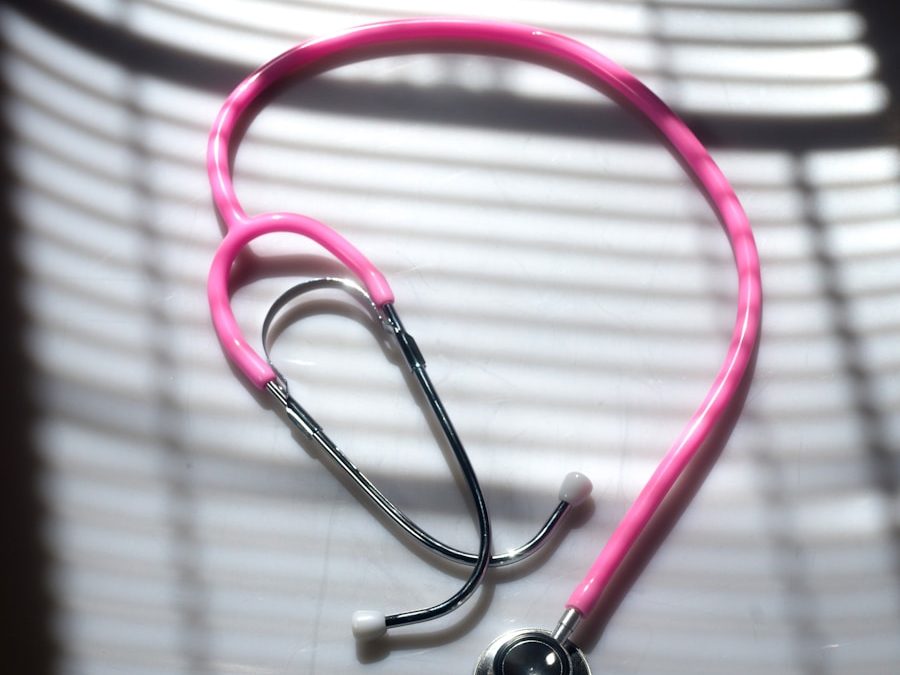The absence of health insurance is a pressing issue that affects millions of individuals and families across the globe. While many may perceive the lack of insurance as merely a financial inconvenience, the reality is far more complex and multifaceted. The real cost of not having health insurance extends beyond immediate monetary concerns, encompassing a wide array of consequences that can significantly impact an individual’s quality of life.
From financial instability to limited access to essential healthcare services, the ramifications are profound and often devastating. In many cases, individuals without health insurance find themselves in a precarious situation where they must make difficult choices regarding their health. The fear of incurring exorbitant medical bills can lead to delayed treatment or avoidance of necessary care altogether.
This avoidance can exacerbate existing health conditions, leading to more severe complications and ultimately resulting in higher costs down the line. Understanding the true cost of being uninsured requires a comprehensive examination of the financial, social, and emotional dimensions that accompany this reality.
Key Takeaways
- Not having health insurance can lead to significant financial consequences, including high medical bills and potential bankruptcy.
- Lack of health insurance can limit access to healthcare services, leading to delayed or inadequate treatment for medical conditions.
- The mental and emotional toll of not having health insurance can be significant, causing stress, anxiety, and fear about potential health issues.
- Without health insurance, individuals may forgo preventive care and early detection of health issues, leading to more serious health problems in the long run.
- The burden of uninsured individuals on the healthcare system can result in higher costs for both providers and other insured patients.
Financial consequences of not having health insurance
The financial implications of lacking health insurance are immediate and often overwhelming.
For instance, a simple visit to the emergency room can cost thousands of dollars, and even routine procedures such as blood tests or X-rays can lead to significant out-of-pocket expenses.
This financial burden can quickly spiral out of control, leading many to accumulate debt or even declare bankruptcy due to medical bills. Moreover, the absence of health insurance can result in a lack of access to preventive care, which is often more cost-effective than treating advanced illnesses. Individuals without insurance may forgo regular check-ups or screenings due to the fear of costs, leading to undiagnosed conditions that could have been managed more effectively if caught early.
The financial strain is not only felt by individuals but also reverberates through families and communities, as those without insurance often rely on emergency services that are funded by taxpayers, further straining public resources.
Impact on access to healthcare services

Access to healthcare services is significantly compromised for those without health insurance. Many healthcare providers require upfront payment or may refuse service altogether to uninsured patients, creating barriers that prevent individuals from receiving timely care. This lack of access can lead to a reliance on emergency rooms for non-emergency situations, which is not only inefficient but also costly for both patients and the healthcare system as a whole.
Additionally, uninsured individuals may face discrimination in healthcare settings, where providers may be less inclined to offer comprehensive care or may prioritize insured patients over those without coverage. This inequity in access can lead to disparities in health outcomes, as uninsured individuals are less likely to receive necessary treatments or follow-up care. The result is a cycle of poor health that perpetuates the challenges faced by those without insurance, further entrenching them in a system that prioritizes profit over patient care.
Mental and emotional toll of not having health insurance
The mental and emotional toll of being uninsured is often overlooked but is equally significant. The constant worry about potential medical expenses can lead to chronic stress and anxiety, which can have detrimental effects on both mental and physical health. Individuals may find themselves in a state of perpetual uncertainty, fearing that any health issue could lead to financial ruin or insurmountable debt.
Moreover, the stigma associated with being uninsured can exacerbate feelings of isolation and shame. Many individuals may feel judged by their peers or society at large for their lack of coverage, leading to a sense of inadequacy or failure. This emotional burden can deter individuals from seeking help or support, further compounding their struggles.
The interplay between mental health and physical health is well-documented; thus, the absence of insurance not only affects access to care but also contributes to a decline in overall well-being.
Effect on preventive care and early detection of health issues
Preventive care is a cornerstone of effective healthcare, yet it remains largely inaccessible for those without insurance. Regular screenings and check-ups are essential for early detection of potential health issues, but uninsured individuals often forego these services due to cost concerns. For example, routine vaccinations, cancer screenings, and cholesterol checks are critical for maintaining long-term health but may be viewed as luxuries by those struggling financially.
Conditions such as diabetes, hypertension, and certain cancers can go undiagnosed until they reach advanced stages, at which point treatment becomes more complex and costly. The lack of early intervention not only jeopardizes individual health but also places an additional burden on the healthcare system as a whole.
Treating advanced diseases often requires more resources and specialized care, leading to increased strain on hospitals and healthcare providers.
Burden on the healthcare system

The ramifications of not having health insurance extend beyond individual experiences; they also impose significant burdens on the healthcare system itself. Uninsured patients frequently rely on emergency departments for their healthcare needs, which are often ill-equipped to provide comprehensive care for chronic conditions or preventive services. This reliance leads to overcrowding in emergency rooms and increased wait times for all patients, regardless of their insurance status.
Furthermore, hospitals are often left with the financial fallout when uninsured patients cannot pay their bills. This results in higher costs for insured patients as healthcare providers attempt to offset losses incurred from uncompensated care. The cycle perpetuates itself as rising costs lead to higher premiums for those with insurance, creating an unsustainable model that ultimately affects everyone within the system.
The burden on healthcare providers can also lead to burnout among medical professionals who are forced to navigate the complexities of providing care in an increasingly strained environment.
Legal and regulatory implications of not having health insurance
The legal landscape surrounding health insurance is complex and varies significantly by region. In some countries, there are mandates requiring individuals to obtain health coverage or face penalties; however, enforcement and compliance can be inconsistent. In the United States, for example, the Affordable Care Act aimed to expand access to insurance but left many gaps that still leave millions uninsured.
The lack of insurance can also expose individuals to legal vulnerabilities when it comes to medical debt. Unpaid medical bills can lead to collections actions, lawsuits, and even wage garnishments, creating a cycle of financial distress that is difficult to escape. Additionally, uninsured individuals may find themselves at a disadvantage when navigating legal protections related to healthcare access or discrimination in treatment based on their insurance status.
Strategies for addressing the real cost of not having health insurance
Addressing the real cost of not having health insurance requires a multifaceted approach that encompasses policy reform, community support initiatives, and increased awareness about available resources. Expanding access to affordable insurance options is crucial; this could involve enhancing public programs like Medicaid or creating more robust subsidies for private insurance plans. Community-based initiatives can also play a vital role in bridging gaps in care for uninsured individuals.
Health clinics that offer sliding scale fees based on income can provide essential services without the burden of high costs. Additionally, educational programs aimed at increasing awareness about preventive care and available resources can empower individuals to take charge of their health despite financial constraints. Furthermore, fostering partnerships between healthcare providers and community organizations can create a more integrated approach to addressing the needs of uninsured populations.
By working together, stakeholders can develop innovative solutions that prioritize access to care while alleviating some of the financial burdens associated with being uninsured. Ultimately, addressing the real cost of not having health insurance requires collective action and a commitment to ensuring that all individuals have access to the care they need without facing insurmountable barriers.
If you are interested in learning more about financial security and protection, you may want to check out this article on home insurance. Home insurance is crucial for safeguarding your property and belongings in case of unexpected events like natural disasters or theft. Having the right insurance coverage can provide peace of mind and financial stability in times of crisis.
FAQs
What are the consequences of not having health insurance?
Not having health insurance can lead to financial strain, limited access to healthcare services, and potential health risks due to delayed or neglected medical treatment.
How does not having health insurance affect healthcare access?
Without health insurance, individuals may struggle to afford necessary medical care, leading to delayed treatment, limited access to specialists, and reliance on emergency services for primary care.
What are the financial implications of not having health insurance?
The cost of medical treatment without insurance can be significantly higher, leading to potential medical debt and financial hardship for individuals and families.
What are the potential health risks of not having health insurance?
Without health insurance, individuals may be less likely to seek preventive care, leading to undiagnosed or untreated health conditions that can worsen over time and result in more serious health issues.


